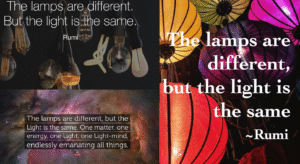By Aung San Oo | MMNN Chief Editor
Myanmar has long been a country that venerates people more than principles. This is not a casual remark — it is a deep-rooted national habit, visible in every sphere of life.

In politics, for instance, many of those who support Daw Aung San Suu Kyi do so not out of a profound understanding of democracy, but from personal devotion to a heroic figure. Their support springs more from emotion than from comprehension of the democratic system itself.
The same psychology exists within the military camp. No matter how much the nation declines, many cling blindly to the sentiment of “our Father’s legacy.” They refuse to acknowledge that the very deeds of this “Father” have brought the country to ruin. This is no longer ideology — it is the worship of individuals.
For generations, Myanmar society has cultivated this personality cult. Instead of valuing systems and principles that ensure lasting progress, people have preferred to rally around the fame and aura of certain individuals. Competence matters less than charisma. What counts is who speaks, not what is said.
If we like a person, everything they say is right; if we dislike them, everything they do is wrong. Such thinking blinds us to the real foundation of progress — the system itself.
True national advancement is never built upon personalities. It is built upon principles and institutions.
Human beings, by nature, rise and fall. They err, they stumble, they change. When a person collapses, everything built upon their charisma collapses with them — like a fossil turning to dust. But a system does not depend on faces or reputations. It functions impartially: right is right, wrong is wrong, regardless of who stands where.
In developed nations, even presidents cannot override the system or the law. In global corporations like Amazon, if the automated system detects an error, even the kindest manager cannot save the employee involved. The rule prevails because the integrity of the system comes first. That is why such societies advance and endure.
Whether under democracy or dictatorship, if Myanmar continues to rely on personalities rather than principles, the country will remain like a paper boat adrift in a pond — floating without direction, fragile and fated to sink.
This cult of personality has deeply penetrated Myanmar’s political, social, and even religious life.
If we truly wish to build a modern nation, we must detach from personal loyalties and focus instead on establishing good systems and sound principles.
Leaders will always change — before power, during power, and after losing it. That is inevitable. But only strong institutions and principled systems can anchor a nation’s stability.
Myanmar will escape its perpetual cycle of crises only when its people finally understand and accept this truth. Otherwise, no matter how times change, the country will continue to revolve endlessly around people, not principles — trapped in its own wheel of samsara.
I asked Google AI about this. The following is its answers…
AI Overview
The “People vs. Principles” dilemma highlights the conflict between loyalty to individuals and adherence to a moral or ethical code. While people can be flawed and disappoint, principles are often seen as a more stable and reliable guide for decision-making, but loyalty to them can be tested, especially when personal risk is involved. The choice often comes down to a leadership or personal test of character: to what extent will one compromise principles to maintain a relationship or secure personal gain?.
Arguments for principles
- Stability: Principles are often considered a more consistent and unchanging guide than people, who can be unpredictable.
- Direction: Principles provide a stable compass for making decisions, creating a sense of purpose and integrity.
- Ethical foundation: Following principles ensures one acts morally and ethically, even when it is difficult or unpopular.
- Long-term vision: A focus on principles helps achieve greater, lasting purpose, whereas focusing only on people might lead to stagnation or short-term thinking.
You can watch this video to learn about the difference between values and principles:



Arguments for people
- Human relationships: Some argue that people and relationships are the ultimate priority, and that focusing too much on abstract principles can be rigid or cold.
- Contextual application: In some situations, a rigid adherence to principles may not be practical, and a people-centered approach that prioritizes empathy and kindness is necessary.
- Implementation: For principles to be effective, they must be embodied by people. A great team or organization is built on the “right people” who are aligned with a set of principles.
When loyalty is tested
- Discomfort and risk: Loyalty to principles is most tested when personal risk increases, such as job security or personal wealth, making it tempting to compromise on one’s ethics.
- Leadership dilemma: Leaders face this choice constantly. A leader who is loyal only to their own benefit rather than to a set of principles can manipulate situations and people for personal gain.
- Personal values vs. company mission: A people-centered approach can be disloyal to the company’s mission or a leader’s own high standards for themselves.
This video discusses what to do when principles are challenged:



Advanced Product Delivery Limited
Finding a balance
- Integrate principles and people: A balanced approach suggests finding people who are themselves principled. In this view, the “right people” are those who are loyal to shared principles.
- Adaptability: Principles should be flexible enough to adapt to new situations without compromising their core values.
- Example: A leader’s loyalty to principles should guide their decisions, even when it involves difficult conversations or potential conflict with individuals they care about.
This video explains the importance of principles in life:



The Difference Between Principles and Values
In his influential book, The 7 Habits of Highly Effective People, Stephen R. Covey outlined the difference between principles and values. In Covey’s view, principles are rules or laws that are permanent, unchanging, and universal in nature. Values are internal and subjective, and they may change over time.

What are principles?
For Covey, principles are self-evident and — as part of most traditions and philosophies over the ages — they’ve been woven into the fabric of societies throughout human history. They often concern human behavior and govern interactions between people.
Principles represent an objective reality that transcends cultures and individuals. For example, Covey cites various principles, including fairness, integrity, and honesty. He declared, “A principle is a natural law like gravity. If you drop something, gravity controls. If I don’t tell you the truth, you won’t trust me; that’s a natural law.”
There are certain principles that transcend cultural differences and do not change over time. They determine the ultimate outcomes or consequences of behavior and actions, as much as gravity determines that something will fall when dropped.
What are values?
In contrast, values are beliefs and opinions that people hold regarding specific issues or ideas, and are ultimately internal, subjective, and malleable. They may change as demands or needs change. If a given belief or opinion is something that might be altered if the conditions are right, then it’s a value.
Values are important in expressing our individual beliefs and opinions, and they can be used tactically to accomplish certain objectives based on our current circumstances, demands, and needs. Values can ultimately reflect or determine the current but potentially alterable goals that we have in our professional, family, and personal life.
Using principles
If you’re looking to create a timeless sense of purpose and to shape the overall mission of your life, then you should use principles. Establishing a set of principles creates a compass to which you can refer whenever something is in doubt or you need to take a stand or evaluate any particular opportunity, behavior, or situation.
Get Keith C Norris’s stories in your inbox
Join Medium for free to get updates from this writer.Subscribe
Moreover, principles can ultimately drive your values and goals. Principles can help you determine your goals and values and help you choose between them when confronted with conflicting issues or circumstances.
You can build a personal value system based on principles, which will help you avoid running afoul of their natural consequences. And principles can be a convenient and comforting reference point so you never feel uncertain or find yourself searching for an answer.
Using principles in setting goals
When conducting personal planning and setting goals, keep in mind this distinction between principles and values, and consider how both of them can be useful. Consider identifying and outlining the universal principles that you want to embrace and that you want to shape your overall mission.
Then, as you identify the things you value most and the goals you want to pursue in your personal, professional, and family life, you can use these principles as a reference point. You can build your values and goals according to these principles, or you can use them to help you realize where your current values, goals, and behavior may be inconsistent with universal realities about human behavior and interactions.
Thus, even if you find that you’ve not always been living up to the principles that you want to embrace, you can make meaningful changes and ultimately incorporate those changes into your values and goals.
Covey pointed to this using the example of honesty and truthfulness. “If I tell you the truth consistently and try to live it, and apologize when I don’t, and try to get back on track, then I’m living a natural-law repentance, making improvements, showing change.”
Ask yourself…
What are the universal, unchanging principles that you can clearly identify? What are the values that you now hold? Do your current habits reflect those values and, ultimately, do your habits and values reflect the principles that transcend current circumstances and can provide a purpose and mission for your life?
With a proper understanding of the differences between values and principles, you can address all of these questions and use the answers to guide you in all of your planning and actions.






